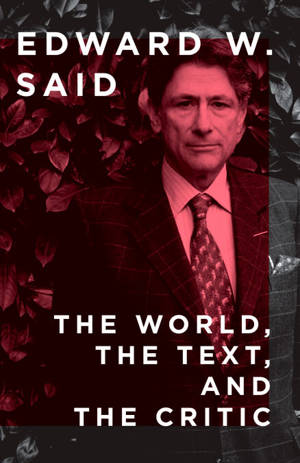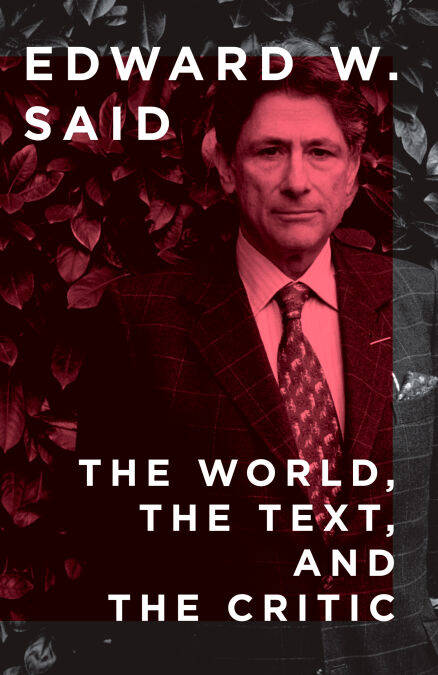
- Afhalen na 1 uur in een winkel met voorraad
- Gratis thuislevering in België vanaf € 30
- Ruim aanbod met 7 miljoen producten
- Afhalen na 1 uur in een winkel met voorraad
- Gratis thuislevering in België vanaf € 30
- Ruim aanbod met 7 miljoen producten
Zoeken
€ 16,12
+ 16 punten
Uitvoering
Omschrijving
A sweeping and intellectually rigorous work of literary criticism that moves the field forward, from one of the preeminent public scholars
“[Said’s] book is relaxed and discursive, original, immensely learned, fluently written.”―John Bayley, The New York Times Book Review
Edward W. Said, author of Beginnings and the controversial yet seminal Orientalism, is one of the most acclaimed public intellectuals of our time. In this sweeping and rigorous work of literary criticism, he pushes the field even further forward. Moving from Derrida to Foucault, from Marxism to psychoanalysis, and from Swift to Conrad, Said argues that the dogmas of the dominant culture have crippled our engagement with literature, forcing a text to meet the requirements of theory while ignoring the tethers that bind it to the living world.
Provocatively, Said advocates for freedom of consciousness and for responsiveness to history; to the exigencies of the text; to political, social, and human values; and to the heterogeneity of human experience. The World, the Text, and the Critic asks daring questions, investigates problems of urgent significance, and gives a subtle yet powerful new meaning to the enterprise of criticism in modern society.
“[Said’s] book is relaxed and discursive, original, immensely learned, fluently written.”―John Bayley, The New York Times Book Review
Edward W. Said, author of Beginnings and the controversial yet seminal Orientalism, is one of the most acclaimed public intellectuals of our time. In this sweeping and rigorous work of literary criticism, he pushes the field even further forward. Moving from Derrida to Foucault, from Marxism to psychoanalysis, and from Swift to Conrad, Said argues that the dogmas of the dominant culture have crippled our engagement with literature, forcing a text to meet the requirements of theory while ignoring the tethers that bind it to the living world.
Provocatively, Said advocates for freedom of consciousness and for responsiveness to history; to the exigencies of the text; to political, social, and human values; and to the heterogeneity of human experience. The World, the Text, and the Critic asks daring questions, investigates problems of urgent significance, and gives a subtle yet powerful new meaning to the enterprise of criticism in modern society.
Specificaties
Betrokkenen
- Auteur(s):
- Uitgeverij:
Inhoud
- Aantal bladzijden:
- 336
- Taal:
- Engels
Eigenschappen
- Productcode (EAN):
- 9798217008650
- Verschijningsdatum:
- 20/10/2025
- Uitvoering:
- E-book
- Beveiligd met:
- Adobe DRM
- Formaat:
- ePub

Alleen bij Standaard Boekhandel
+ 16 punten op je klantenkaart van Standaard Boekhandel
Beoordelingen
We publiceren alleen reviews die voldoen aan de voorwaarden voor reviews. Bekijk onze voorwaarden voor reviews.








